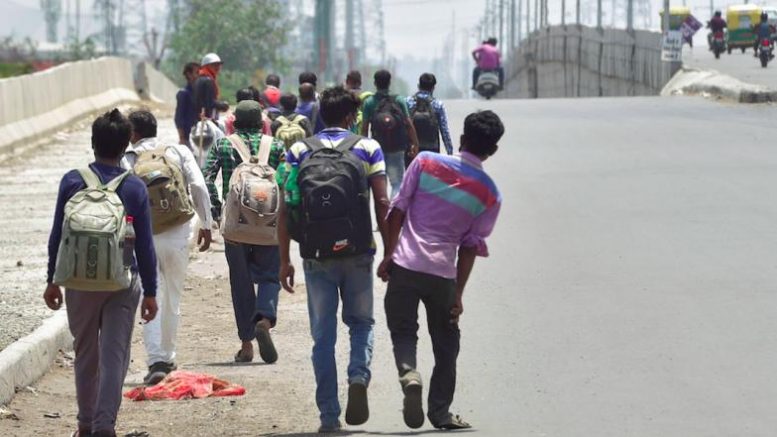One of the biggest groups effected by the COVID pandemic are the migrant workers. Workers are returning to their home towns by the millions. Due to the curtailed economic activities, they are looking to return to villages to explore traditional sources of employment. While the jury is still out on who should have shouldered the responsibilities for protecting livelihoods and creating better and safer working environments, the more important point is how we should take steps that build the confidence among workers and how we can ensure better facilities, safer working environments and continued livelihood sustenance.
At times like these, I feel that the starting point should be a series of confidence building measures which can bring back a renewed sense of economic security to them. I was speaking to some friends who are heading companies which are into product manufacturing. While many of them shared that there was severe difficulty in finding workers for work in the factories, they also shared the various steps that they were taking to provide a more protected and comfortable environment for the migrant workforce. Companies are making several efforts to ensure safe and comfortable housing and also help in various other ways like arranging check ups etc.
Social distancing and food are two primary challenges that migrant groups keep facing. Many Gurdwara Parbandhak Committees, NGO’s, private donors and private companies have been distributing food for needy migrants. Many factories and condominiums are making arrangements for staff to stay on premises with social distancing norms. Many reputed doctors are also spreading public awareness on the best, low cost ways to enhance immunity. All these factors are spreading information and bringing relief to many needy migrants.
All my friends in various companies agree that providing better facilities and creating more opportunities for migrant workers is most essential so that they earn better livelihoods, function with more comfort and also become able to support their family members who have perhaps gone to their native home towns or villages. Keeping this in view, various companies have started schemes which will provide this kind of help to migrant workers.
Communicators and CSR teams of companies would play a strong role in reversing this migration of workers. HR teams too will have a crucial role to play. When I was working with a well known FMCG company in the 90s, there was an outbreak of plague in Surat. My territories involved Maharashtra towns which were close to Surat. The situation created lots of problems for everyone and there was a climate of fear and uncertainty in society which percolated into business dealings as well. I knew that the shopkeepers doing business with us were impacted by this and they required support, reassurance and motivation. I immediately started a constant contact program and kept in touch with all the shopkeepers in my area regularly. I was alleviating their worries and providing constant encouragement and support and kept them updated with correct business information. This kind of a proactive engagement process helped them continue their work and not pay heed to rumors. It kept them strong and they were able to look after their businesses properly.
A key learning here is that in such times, a proactive process of engagement and information sharing has to be initiated by the company. Companies and managers have to be very active in providing correct information and helping workers so that their problems are solved. This approach can help workers and support staff get a tremendous relief at a time when the predominant mood is one of fear and uncertainty. Communicators, CSR team members and HR members would have to seize this as an opportunity to create campaigns and processes that genuinely reach out and help workers and support staff and even their families, this will go a long way towards stopping the reverse migration.
The views and opinions published here belong to the author and do not necessarily reflect the views and opinions of the publisher.



Be the first to comment on "Confidence building is the key to stopping reverse migration"